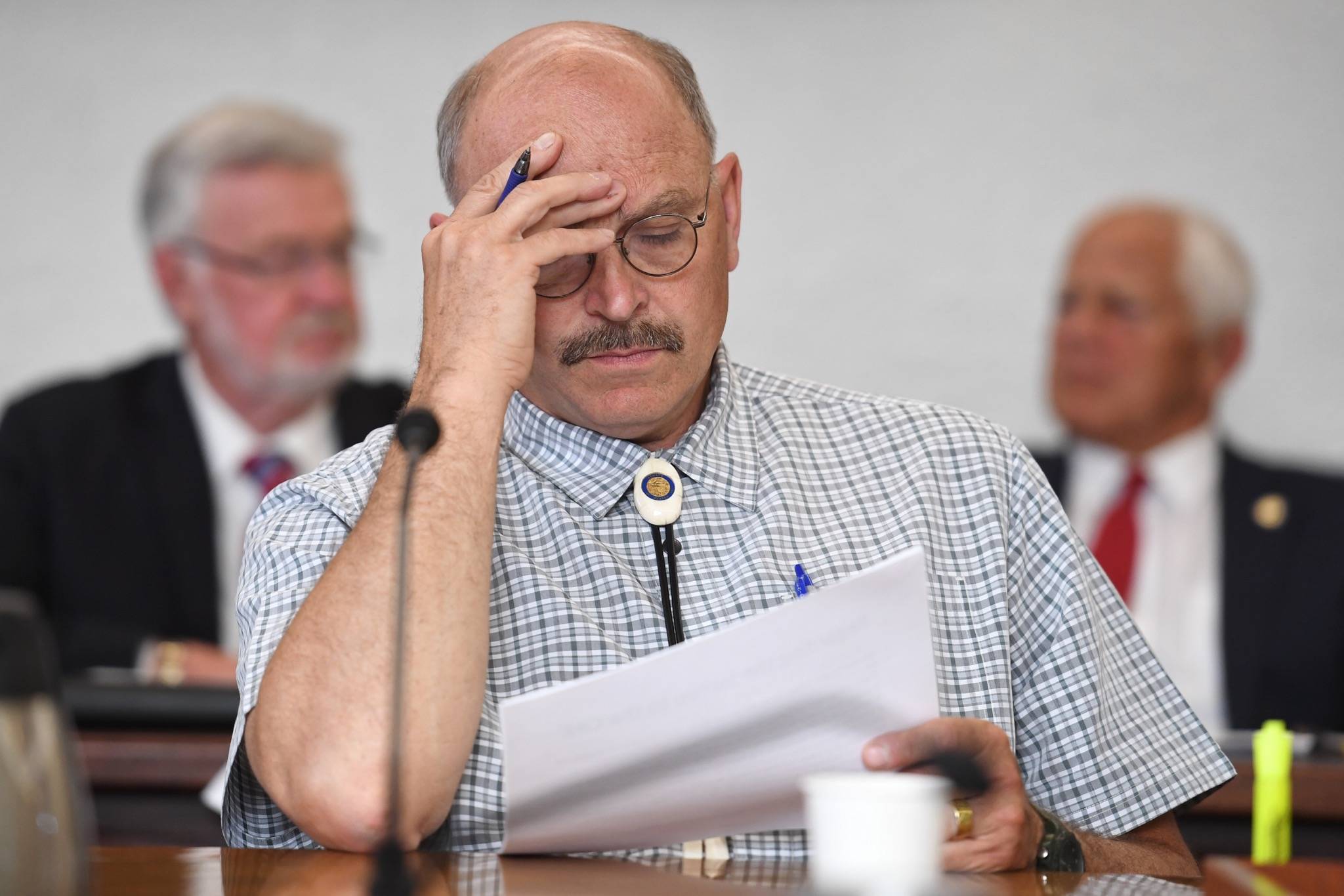Permanent Fund Dividends and overriding Gov. Mike Dunleavy’s budget vetoes have been the main topics of conversation surrounding the Legislature’s special session in Juneau.
But Director of Legislative Finance David Teal said Tuesday morning during a meeting of the Senate Finance Committee “the sweep” should concern both the public and Legislature. The sweep is an accounting term for money that’s moved from various state accounts into the Constitutional Budget Reserve.
“I’m not sure the public knows how critical an issue it is,” Teal said. “If you don’t reverse this sweep … it’s just a nightmare. You’re dealing with appropriations that have no money to back them.”
Typically, the sweep happens on June 30, and the money is moved back on July 1 by a “reverse sweep,” which is passed by a super majority — three-fourths — of the Legislature. However, there was no reverse sweep in the Legislature’s approved budget nor in the vetoed budget signed by the governor.
Teal said a reverse sweep could be added by the Legislature to the capital budget or another appropriation bill.
If swept, Teal said funds simply add to the balance of the CBR, and he’s unsure how that balance would be used.
Right now, Teal said he is also uncertain which funds the governor intends to sweep, but there are rumors that it may be more expansive than usual and include the Power Cost Equalization fund, which offsets the cost of power for rural Alaskans, and the Higher Education fund.
“All we have are rumors about what he plans to sweep,” Teal said.
The governor’s office and the Office of Management and Budget did not return an email or call seeking comment.
Whether some of the likely targeted funds can legally be swept is also up in the air, Teal said.
Sen. Lyman Hoffman, D-Bethel, said it may be a good idea to pursue a legal decision as to whether the PCE can be swept.
“This is quite the can of worms,” said Sen. Bert Stedman, R-Sitka, Co-Chair of the Senate Finance Committee.
If a fund is swept, there will not be money to back appropriations, Teal said.
That could mean a lack of funding for the crime bill, WWAMI — WWAMI is the University of Washington School of Medicine’s multi-state medical education program; the acronym, stands for the states it serves: Washington, Wyoming, Alaska, Montana and Idaho — and post-secondary education grants and scholarships.
“These are things you probably need to consider and weigh the consequences,” Teal said.
For example, he said a university student could think they have a scholarship only to find that after the sweep there is no money available for their scholarship.
“I just think it’s important what you pointed out that while WWAMI was not vetoed, it may not be funded because of a lack of a reverse sweep,” said Sen. Natasha von Imhof, R-Anchorage, committee co-chair.
She brought the matter of the sweep to focus again when the Senate convened.
During special orders, von Imhof said an expansive sweep and the governor’s vetoes would be at least equal to the “regressive tax” of a smaller PFD.
“These vetoes to pay for a dividend of any amount, much of that money is going to go to plugging the holes in the budget that has helped our economy maintain vibrancy,” she said. “I worry people are cutting their nose to spite their face and not realizing the full visceral impact of these vetoes.”
State of the budget
While “sweep” was the wonky word of the day, during the finance meeting Teal also spoke to the impact of the governor’s vetoes on the budget.
Teal said while the budget may be balanced on paper, after more than $400 million in vetoes, it does not leave much room for unforeseen expenditures such as a natural disaster or a revenue shortfall if oil prices go down.
However, he allowed it’s also possible oil prices could increase and provide more revenue than expected.
• Contact reporter Ben Hohenstatt at (907)523-2243 or bhohenstatt@juneauempire.com. Follow him on Twitter at @BenHohenstatt.
• Contact reporter Ben Hohenstatt at (907)523-2243 or bhohenstatt@juneauempire.com. Follow him on Twitter at @BenHohenstatt.


